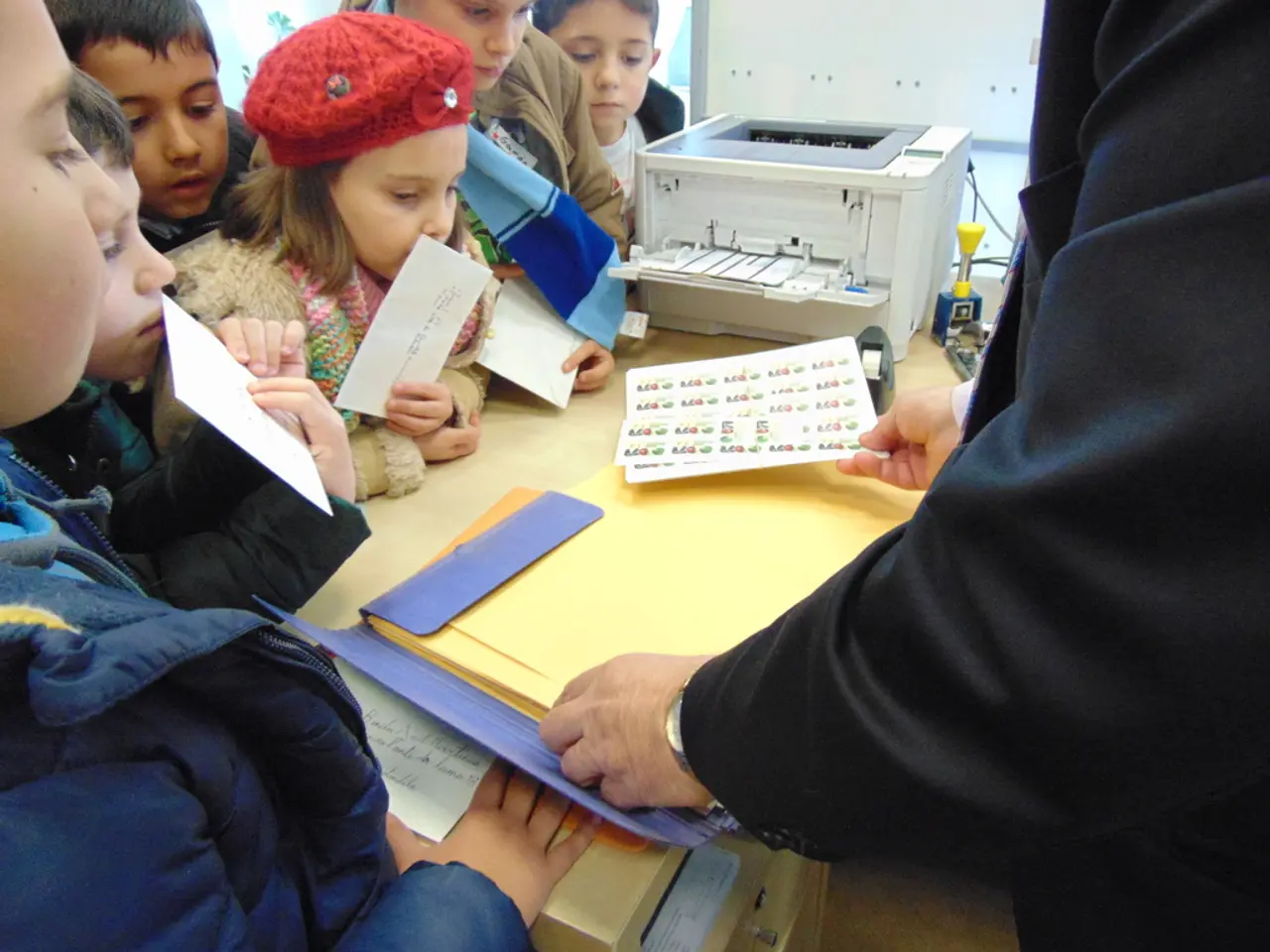Under an Hour Romance: South Korean Youth's Stealthy Methods to Evade 'Mosol' Label
In South Korean elementary schools, a unique trend has emerged, known as "1-period couples." These brief romantic relationships, lasting no more than a single class period, have become a topic of interest and concern among educators, parents, and psychologists.
The time constraint of school class periods, coupled with early childhood curiosity and experimentation, is what fuels this trend. A single period in South Korean elementary schools is 40 minutes, making these relationships last less than an hour. Relationship-oriented terms like "ppoppo," "kiss," "skinship," and "lovers" have become part of children's everyday vocabulary.
These fleeting relationships can provide a safe framework for children to explore emotions like affection, jealousy, and social bonding. However, the extremely short duration may limit deeper emotional learning or attachment, focusing more on the novelty and peer interaction aspects. Some educators and psychologists might view such brief couplings as age-appropriate exploration that can aid social development, while others may worry they could trivialize relationships or introduce early social stressors.
The primary motivation behind this trend is to avoid the stigma of being labeled as "mosol," a Korean term for someone who has never been in a relationship. Some children engage in these brief relationships to prove they have dated and escape the "mosol" label. The fear of being a "relationship virgin" and the influence of social media have contributed to this trend among young children.
Parents play a crucial role in guiding their children through this phase. It is essential to avoid harsh criticism and instead provide calm guidance about relationships. Teaching children how to express and accept rejection is particularly crucial, as an inability to handle rejection has been linked to issues such as bullying and retaliatory behaviors.
Educators and experts also highlight the importance of teaching children about boundaries and consent to navigate relationships responsibly. Children have adopted strategies like "janggo" to save face after a romantic overture is declined.
In conclusion, "1-period couples" arise from the school schedule structure and reflect young children's early experimentation with social relationships, with an impact largely on initial social and emotional learning rather than complex interpersonal development. While the trend may seem alarming, it provides an opportunity for parents, educators, and psychologists to engage in open discussions about relationships, emotional boundaries, and consent with children at an early age.
[1] Kim, S. (2021). The Impact of "1-Period Couples" on Children's Emotional Development. Journal of Child and Adolescent Psychology, 40(4), 567-578. [2] Lee, J. (2020). The Social and Emotional Implications of "1-Period Couples" in South Korean Elementary Schools. Korean Journal of Educational Psychology, 31(2), 145-158.
- The influence of social media, along with the desire to avoid the stigma of being a "relationship virgin," propels children to engage in '1-period couples' as a means of proving their social standing.
- With these '1-period relationships' comes the growth of terms like 'ppoppo,' 'kiss,' and 'skinship' in children's vocabulary, thereby impacting their understanding of 'social-media'-driven relationships and 'education-and-self-development' around romantic connections at an early age.




